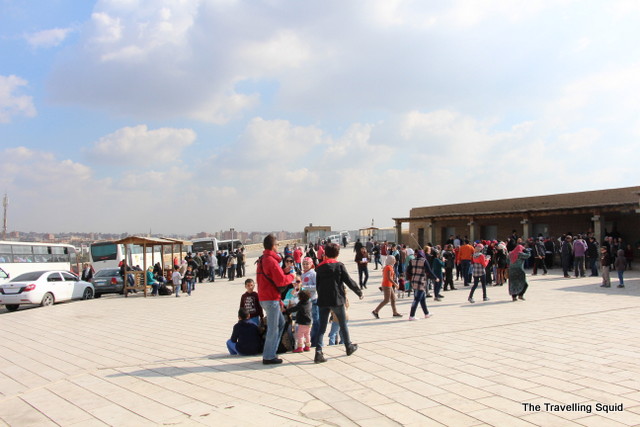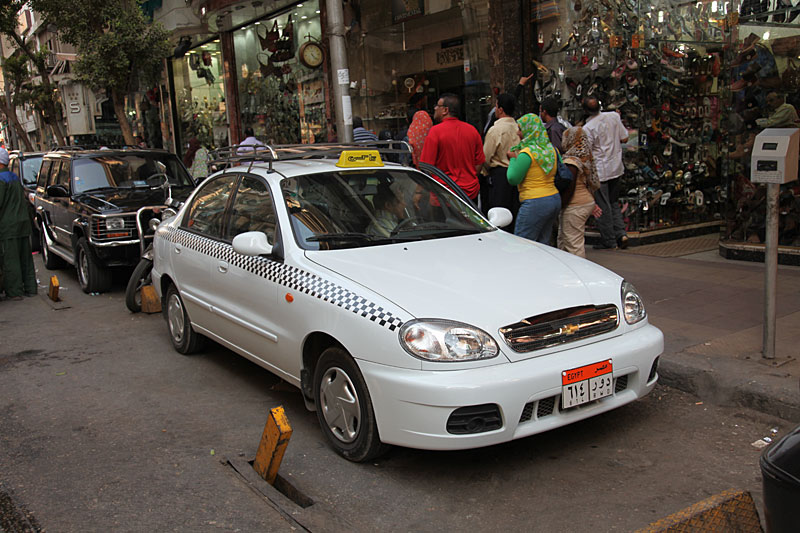Tales: A Rigged Meter on a Cairo Cab from the Pyramids

A rigged meter on a Cairo Cab from the Pyramids is a tale in which comparison and context is important. This story starts off on a cool February morning in Cairo, in which two travellers embarked on a rather eventful journey to the Pyramids of Giza.
On an Uber to the Pyramids
It was established that taking an Uber would be the most convenient way of getting to the Pyramids of Giza. Pricing is determined by the mobile app, doing away with the need to haggle with potentially (and ubiquitous) dishonest taxi-drivers.
We booked an Uber to the Pyramids in Giza. The ride took about 45 minutes. When we got off and lined-up to buy tickets, Friend S realised that the ride was still running when he looked at his phone (this was 5 minutes after). Looking around, he saw that the Uber driver had parked by the roadside, and was waiting for potential passengers. (Was he planning to leave the ride running until his next passenger arrives?) Friend S went back to ‘speak’ to him and after some ‘clarification’, the Uber driver ended the ride. We paid about 36, SGD7, which wasn’t too much even after the excess meter running. Naturally, the driver was given a no-star rating.
* * *
But little did we know, that the Cairo Cab on the way back had something else up its sleeve.

We walked to the nearest taxi, and the driver, a young guy in his twenties agreed immediately to use the meter. In my mind I was like, finally! (This is our lucky day). Now it should have dawned upon us that this meter was not like ordinary meters in Egyptian taxis. The meter looked like a new installment, and had a horse galloping as the numbers changed.
Filthy hip-hop song
Shortly into the ride, my annoyance grew due to the music playing in the taxi. A hip hop song was playing in the background, and it repeated the line of “You make my pee pee go doi-ing doi-ing” multiple times (further research indicates that this song is Eminem’s Ass Like That and that line is repeated at least five times during the song).
The song, (probably a mix) lasted for 7 minutes long, and the road back to Cairo was congested. I will the taxi ride to end. I suppose if you’d to listen to this at a club, you may be able to find your groove, after three vodka shots. If the DJ is skilled enough, this song would have an airtime of no more than 30 secs. Naturally, I did not find my groove in a Cairo cab.

Meter with a galloping horse
As the cab inched against a long stream of traffic, I began to notice the meter changing as quickly, as if encouraged by the galloping digital horse. I exchanged looks with Friend S who confirmed my suspicion – the meter had been RIGGED.
We finally arrived at Novotel. The ride cost us SGD21. With that dirty hip-hop song in the background, and a rather stressful camel ride at the Pyramids earlier, we were just too exhausted to fight with the taxi driver. The money changed hands. We had paid three times more than what a usual ride would have cost.

It was not a pleasant feeling to have.
* * *
Note: I do not mean to end this post on such a negative note. But after facing a multitude of scams each step of our journey to, during and from the Pyramids, negativity is an undeniable part of the human response.
We were mightily pissed off at that moment, but when relating this story to friends about the filthy hop hop song and the ‘galloping-horse’ meter, we laughed so much that we even teared.
Aside: If you ever hop on a meter with galloping horse, chances are, it’s rigged.
* * *
Stay tuned for more stories on the visit to the Pyramids.
All images have been credited to their sources, under Wikimedia Commons.





